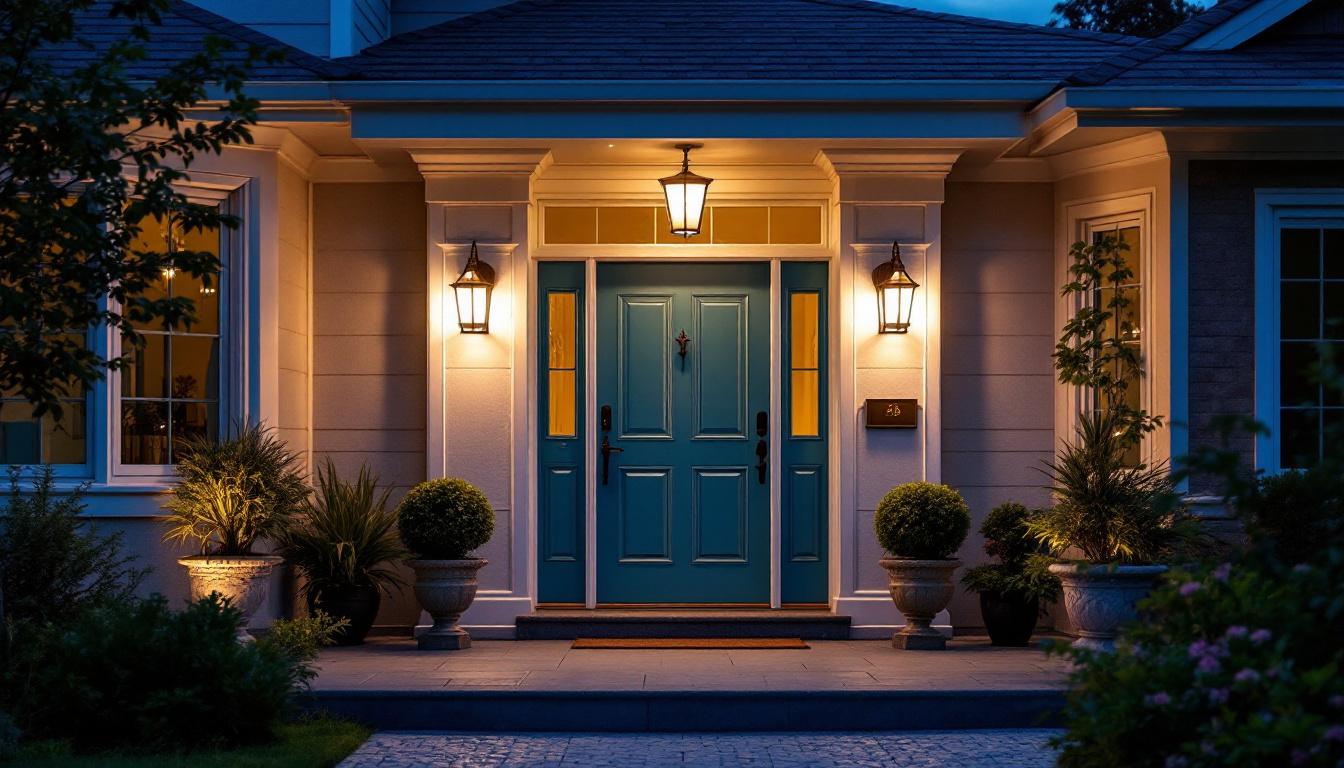
In today’s competitive lighting market, contractors face increasing pressure to meet and exceed client expectations. Whether working on residential, commercial, or industrial projects, lighting contractors must possess a comprehensive understanding of both technical expertise and customer service skills. Clients are no longer satisfied with basic installations; they seek partners who can provide innovative solutions, energy efficiency, and seamless project management.
Statistics reveal that nearly 70% of clients prioritize energy-efficient lighting solutions when selecting a contractor. This trend reflects growing environmental awareness and the desire to reduce operational costs. Therefore, contractors who are well-versed in sustainable lighting technologies and can articulate the benefits of energy-saving options stand out in the eyes of clients.
One of the most significant shifts in client expectations is the demand for smart lighting systems. These systems offer enhanced control, customization, and integration with building automation. Clients expect lighting contractors to not only understand the basics of LED technology but also to be proficient in installing and programming smart lighting controls.
For example, commercial clients often seek lighting that can adjust based on occupancy or daylight availability, reducing energy consumption and improving comfort. Residential clients may desire voice-activated or app-controlled lighting setups. Contractors who can demonstrate expertise in these areas position themselves as valuable resources rather than mere installers.
Moreover, the integration of smart lighting with other smart home technologies is becoming increasingly popular. Clients are looking for solutions that not only illuminate their spaces but also enhance their overall living experience. This includes the ability to synchronize lighting with security systems, HVAC controls, and even entertainment systems. As such, contractors who can offer comprehensive smart home solutions, including lighting, are likely to attract a more discerning clientele. Understanding the nuances of how these systems interact can set a contractor apart in a crowded market.
Additionally, the aesthetic aspect of lighting is gaining prominence in client discussions. Clients are not just interested in functionality; they also want their lighting choices to reflect their personal style and enhance the overall design of their spaces. This means that contractors must stay updated on the latest design trends and be able to provide a variety of options, from minimalist fixtures to statement pieces that can serve as focal points in a room. By combining technical knowledge with an eye for design, contractors can create tailored solutions that resonate with clients on both practical and emotional levels.
Clients expect lighting contractors to have a deep technical knowledge base that goes beyond simple wiring and fixture installation. This includes familiarity with the latest lighting codes, standards, and best practices that ensure safety and compliance. A contractor’s ability to stay updated with the evolving technologies and trends in the lighting industry is crucial, as it reflects their commitment to delivering high-quality service and innovative solutions tailored to the client’s needs.
Understanding and adhering to local and national electrical codes is fundamental. Clients rely on contractors to navigate complex regulatory environments to avoid costly delays or legal issues. For instance, compliance with standards such as the National Electrical Code (NEC) and local energy codes is critical for project approval and long-term safety. Additionally, contractors must be aware of any changes in legislation that may affect their projects, ensuring that they are always operating within the legal framework.
Moreover, contractors should be knowledgeable about certifications like DLC (DesignLights Consortium) and ENERGY STAR, which can influence client decisions by guaranteeing product performance and efficiency. These certifications not only enhance the credibility of the products used but also assure clients that they are investing in sustainable solutions that contribute to environmental conservation. By actively promoting and utilizing certified products, contractors can help clients achieve their sustainability goals while also benefiting from potential rebates and incentives.
Clients expect contractors to provide more than just installation services; they want guidance on lighting design that enhances aesthetics and functionality. This includes calculating appropriate light levels, selecting suitable fixtures, and positioning them to optimize illumination while minimizing glare and shadows. A well-thought-out lighting design can transform a space, making it more inviting and functional, which is particularly important in commercial settings where ambiance can significantly impact customer experience.
Lighting contractors who can collaborate with architects and interior designers to develop cohesive lighting plans demonstrate a higher level of professionalism and add significant value to the project. This collaboration often involves understanding the specific needs of the space, such as the type of activities that will take place and the mood that needs to be created. By integrating lighting seamlessly with the overall design, contractors can ensure that the lighting not only serves its practical purpose but also enhances the visual appeal of the environment.
Energy efficiency remains a top priority for clients. Contractors are expected to recommend solutions that reduce energy consumption without compromising lighting quality. This may involve specifying LED fixtures, incorporating daylight harvesting techniques, or integrating occupancy sensors. By leveraging advanced technologies, contractors can help clients achieve significant reductions in energy costs, which is increasingly important in a world where energy prices are on the rise.
Clients appreciate contractors who can provide detailed cost-benefit analyses, illustrating potential savings over the lifespan of the lighting system. This transparency builds trust and helps clients make informed decisions. Furthermore, contractors can educate clients on the long-term benefits of energy-efficient lighting, including reduced maintenance costs and improved durability of fixtures, which can lead to lower overall project costs in the future. By positioning themselves as knowledgeable advisors, contractors can foster lasting relationships with clients, ensuring repeat business and referrals in an increasingly competitive market.
Beyond technical expertise, clients place high importance on the contractor’s ability to manage projects effectively and communicate clearly throughout the process.
Clients expect regular updates on project status, potential challenges, and changes in timelines or costs. Effective communication reduces uncertainty and fosters a collaborative relationship. Lighting contractors who proactively address concerns and provide clear explanations are more likely to earn repeat business and positive referrals. Additionally, utilizing various communication tools, such as project management software and instant messaging apps, can enhance real-time collaboration. This not only keeps clients informed but also allows for immediate feedback, ensuring that any adjustments can be made swiftly and efficiently.
Meeting deadlines and staying within budget are critical client expectations. Delays and cost overruns can damage reputations and client trust. Contractors who demonstrate strong organizational skills, use project management tools, and coordinate efficiently with suppliers and subcontractors are better equipped to deliver on these promises. Moreover, implementing a detailed project timeline that outlines key milestones can help clients visualize progress and understand the workflow. This transparency not only builds confidence but also allows for better planning on the client’s part, ensuring that their expectations align with the contractor’s capabilities.
Unexpected issues often arise during lighting projects, from supply chain disruptions to onsite challenges. Clients value contractors who can adapt quickly, propose alternative solutions, and maintain project momentum. This agility reflects professionalism and commitment to client satisfaction. Furthermore, fostering a culture of innovation within the team can lead to creative problem-solving approaches. For instance, when faced with a sudden shortage of materials, a contractor might explore sustainable alternatives or collaborate with local suppliers to find a quick solution. Such proactive measures not only resolve immediate concerns but also demonstrate a contractor’s resourcefulness and dedication to delivering high-quality results, even under pressure.
Lighting contractors who stay current with technological advancements not only meet client expectations but also position themselves as industry leaders.
Clients increasingly seek lighting solutions that integrate seamlessly with broader building automation systems (BAS). This integration allows for centralized control of lighting, HVAC, security, and other systems, enhancing operational efficiency.
Contractors knowledgeable in BAS protocols such as BACnet or KNX can provide comprehensive solutions that appeal to sophisticated commercial clients.
Modern lighting contractors leverage design and simulation software to create precise lighting plans and visualize outcomes for clients. Tools like photometric analysis software enable contractors to predict light distribution and energy consumption accurately.
Employing these technologies demonstrates professionalism and helps clients understand the value of proposed solutions.
The lighting industry evolves rapidly, with new products, standards, and technologies emerging frequently. Clients expect contractors to maintain up-to-date knowledge through certifications, training programs, and industry events.
Contractors who invest in continuous learning signal dedication to quality and innovation, which can differentiate them in a crowded marketplace.
Ultimately, clients want lighting contractors they can trust to deliver high-quality work reliably and professionally.
Clients expect contractors to specify and install durable, high-performance lighting products. Using inferior materials can lead to premature failures, increased maintenance costs, and dissatisfaction.
Contractors who partner with reputable manufacturers and stay informed about product warranties and specifications provide added assurance to clients.
Quality workmanship is evident in neat wiring, precise fixture alignment, and clean finishes. Clients notice these details and associate them with professionalism and pride in work.
Contractors who prioritize craftsmanship build reputations that lead to referrals and long-term success.
Clients appreciate contractors who offer ongoing support, including maintenance services, troubleshooting, and upgrades. This commitment extends the life of lighting systems and enhances client satisfaction.
Providing clear documentation and training for client staff also demonstrates thoroughness and care.
Lighting contractors who understand and anticipate client expectations position themselves for success in a dynamic industry. Technical expertise, effective communication, embracing innovation, and delivering quality workmanship are essential components of client satisfaction.
By focusing on energy efficiency, smart technologies, and comprehensive project management, contractors can build lasting relationships and grow their businesses. Ultimately, clients seek partners who not only meet their immediate lighting needs but also contribute to long-term value and sustainability.
As you strive to meet and exceed your clients’ expectations, LumenWholesale is here to support you every step of the way. Our commitment to providing top-quality, spec-grade lighting products at unbeatable wholesale prices ensures that you can deliver the innovation, energy efficiency, and quality workmanship your clients demand. With our extensive selection that meets the highest industry standards, free shipping on bulk orders, and no middleman markups, you can trust that you’re getting the best value in lighting solutions. Elevate your lighting projects and grow your business with the perfect blend of quality, affordability, and convenience at LumenWholesale.

Explore the cutting-edge innovations in lighting design and installation with Company Lighting.

Explore the innovative world of retrofitting in lighting design and installation, where classic aesthetics meet cutting-edge technology to illuminate spaces sustainably and stylishly.

Discover how outdoor front door light fixtures can boost your lighting contracts by enhancing curb appeal and safety.

Discover essential insights into architectural grid mount lights tailored for lighting contractors.